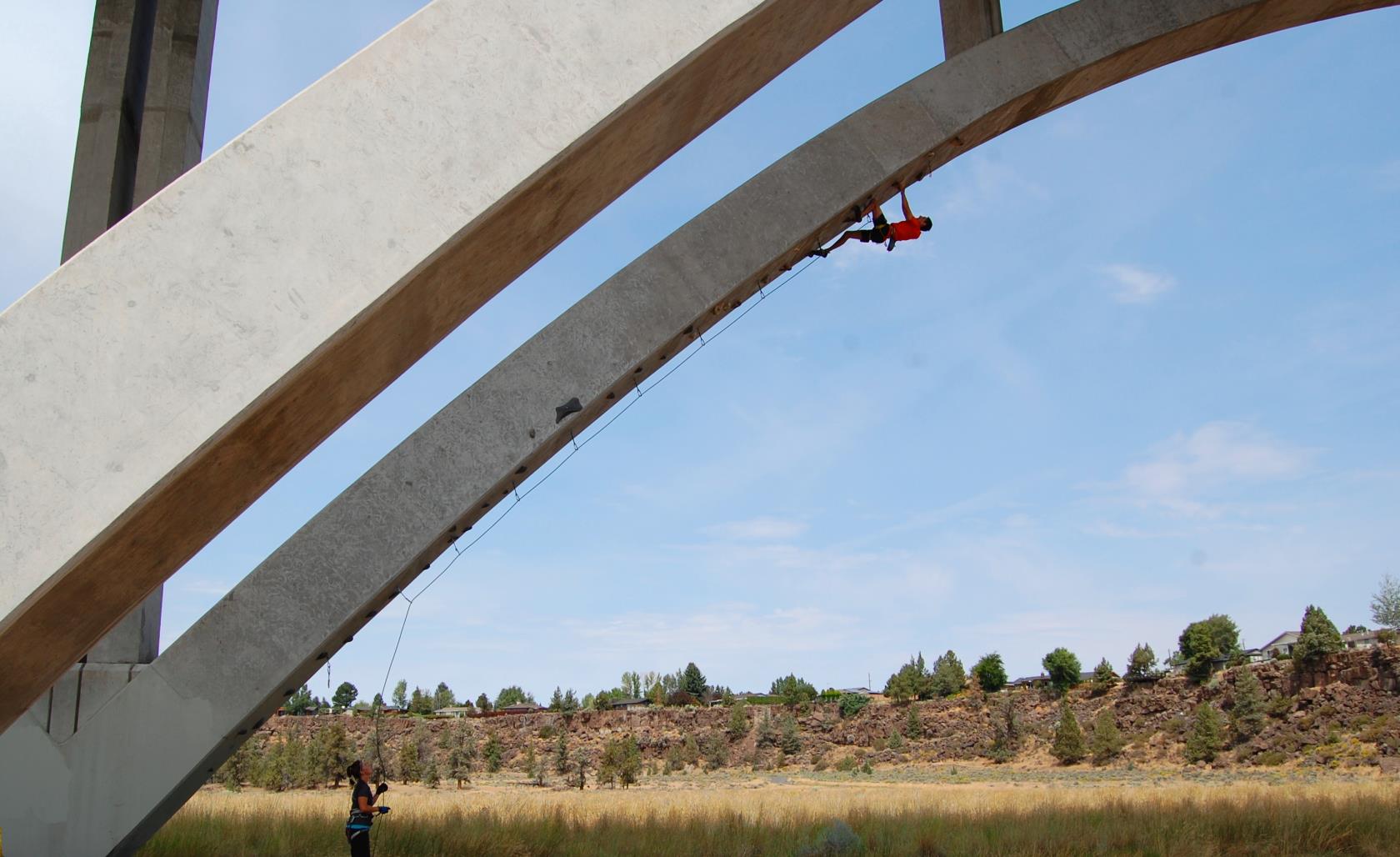Photo: Ian Caldwell (c)
A unique legal issue called Recreational Immunity, which affects park and recreation districts (and all public and private landowners that offer their lands for public use) came before the Oregon Legislature in the latter half of 2016. Although RAPRD, as a public agency, does not take positions on pending political issues, we thought it would be interesting to take an objective look at a matter that Oregon has already resolved that many in Redmond might not have been aware of at the time.
In most states, the legal principle of “recreational immunity” protects landowners who offer their lands for public use for free. For example, if a landowner turns a plot of land into a little pocket park for their neighborhood, or if a land trust allows equestrians to utilize the trails on undeveloped land, and they don’t charge a fee, park and trail users wouldn’t be able to sue the land owners if they twisted their ankle or fell off their horse. Schools that leave their playgrounds and sports fields open after hours for the public to use for free can’t be sued if someone slips off the monkey bars. The purpose of this immunity is obviously to encourage land owners to open their lands for public use free of charge. Without such protection, why would anyone ever provide the public access to their property if they then had to insure themselves to the hilt to protect against the threat of lawsuits?
Recreational immunity is usually created by statute. That means the state legislature usually writes and passes a law that says that landowners who let the public use their property for recreation can’t be sued if someone engaging in recreational activities there gets hurt. Oregon has had such a law on the books since 1971 as part of the Oregon Public Use of Lands Act.
Other parts of Oregon law make sure that individual employees who are just doing their jobs the right way can’t be sued personally for something done under the umbrella of their jobs. The employer is sued but the individual is protected.
A “tort” is the kind of wrong that the law says you can sue for. It is the civil law equivalent of a “crime” under criminal law. The law in Oregon that explains who can be sued and for what is called the Oregon Tort Claims Act. One of the key parts of the act is the part that explains how employers are responsible for the acts of their “agents.” For example, if a delivery driver hits reverse instead of drive and backs into a storefront, usually the company can be held legally responsible. Volunteers are often also considered “agents” of a company or organization for the purposes of the lawsuits.
Previously, in Oregon – as in other states, this kind of agency law, which decides who counts as an agent, and what torts committed by agents employers can be held legally responsible for – also protected employees and volunteers from certain types of lawsuits. This kind of immunity meant that if it was your job as a school district employee to clean up the playground and later, someone got cut on a piece of glass there, as long as you could show you were doing your job properly, your employer would be responsible, and you (in your personal capacity) would be protected from the lawsuit as an agent of your employer.
Then, in March of 2016, the Oregon Supreme Court changed everything.
The hole the court ruling would eventually punch in the law began with a hole in the ground. A city maintenance employee named Gibson dug a hole to fix a sprinkler in a Portland public park. Johnson, a legally-blind jogger, was injured when she fell into the hole, and sued Gibson as well as the maintenance supervisor, Stillson, individually. She argued that they didn’t do their jobs properly and were personally responsible for her injury. She further argued that recreational immunity did not protect them because they weren’t “owners” of the land, under the definition of the Oregon Public Use of Lands Act. Rather, the city was the owner and the individual employees could be sued. The Supreme Court agreed.
After reviewing all the case law, the Court determined that the legislature had not meant employees and agents to be protected by recreational immunity, but rather only landowners (in this case, the city). This case devastated public entities like cities, counties, school districts, and park and recreation districts, who regularly allow the public to use their lands for recreational activities free of charge. It would become prohibitively expensive to insure all their employees against the possibility of expensive lawsuits, so many of these agencies would have to close their lands to the public. The ruling was very unexpected because recreational immunity in other states protects the agents and employees of landowners, as well as the owners themselves.
Thankfully, in July 2016, the Oregon legislature stepped in to correct its error. They amended the law to restore recreational immunity protection to agents and employees of landowners. This means that every park employee you see out in Redmond mowing a lawn or fixing a sprinkler, maintaining a trail, or unloading a picnic table is no longer at risk of losing their livelihood in a lawsuit against them personally as a result of their job keeping lands available to the public for recreation. Because of the legislature’s quick action, only months after the potentially damaging Supreme Court ruling, landowners like RAPRD can still afford to open their lands to the public for hiking, cross country skiing, riding, parks, etc. without the crush of impossible insurance costs.
Photo: Ian Caldwell (c)





